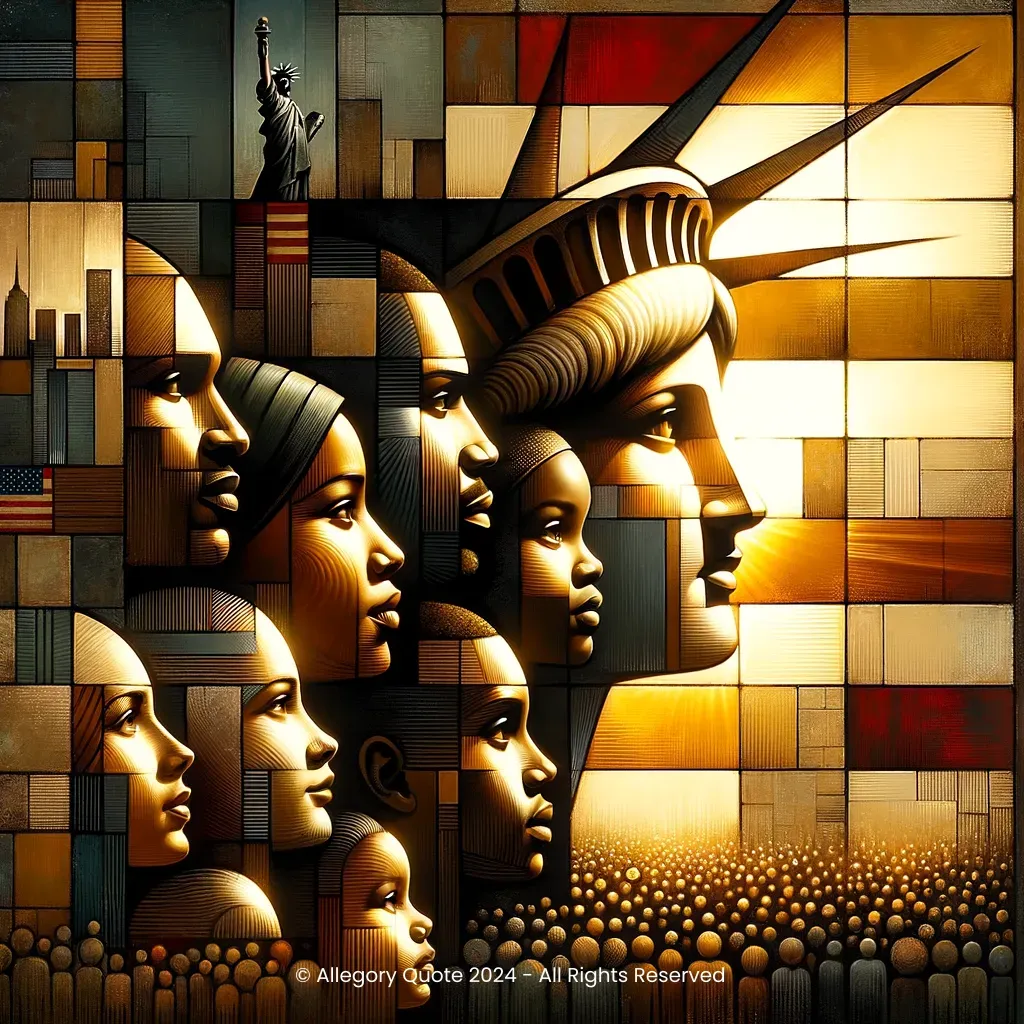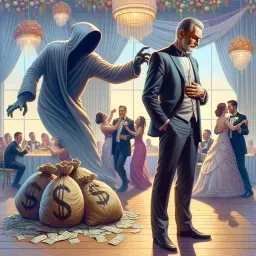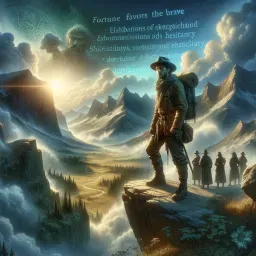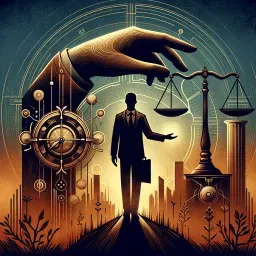I believe in America. America has made my fortune

- Meaning
- The phrase conveys a sense of faith in America and the promise of prosperity it offers. It suggests a narrative of hope, aspiration, and the quest for success that resonates deeply with the immigrant experience, reflecting trust in a system that, despite its flaws, can provide opportunities for wealth and success.
- Allegory
- The image elements together reflect the essence of the phrase by showcasing a collective belief in the potential for success in America. The diverse group symbolizes the myriad of individuals who have sought fortune through belief in America, while the horizon represents the limitless possibilities that lie ahead. The warm colors evoke feelings of optimism and the golden light symbolizes hope and the promise of prosperity.
- Applicability
- This phrase can serve as a reminder to appreciate the opportunities available to individuals and to invest in oneself through hard work and perseverance. It encourages a proactive approach to take advantage of the possibilities life offers.
- Impact
- The phrase has had a lasting impact as it encapsulates the ideals of ambition and aspiration within American culture. It resonates with many who have immigrated to the U.S. seeking a better life and has been quoted in discussions about the American Dream and cultural narratives surrounding success.
- Historical Context
- The phrase originates from the early 1970s within the historical context of America as a land of opportunity, especially for immigrants. During this time, many individuals sought to achieve the American Dream, a concept intertwined with the ethos of the post-war era and its economic boom.
- Criticisms
- Some criticisms may arise from the notion that belief in America equates to blind faith in a system that has historically marginalized certain groups. Critics argue that not everyone has equal access to fortune in America, pointing to systemic inequalities that undermine the promise of the American Dream.
- Variations
- Variations of this phrase may exist in different cultures, often referring to the concept of faith in one's country or the promise of prosperity. For example, in many Latin American countries, the idea of 'El Sueño Americano' captures a similar hope for a better life in America, yet it may reflect different nuances based on personal experiences of immigrants.
-

Fredo, you’re my older brother and I love you. But don’t ever take sides with anyone against the family again.
-

What’s the matter with you? Is this how you turned out? A Hollywood finocchio that cries like a woman?
-

Michael, we're bigger than U.S. Steel.
-

A man who doesn't spend time with his family can never be a real man.
-

I trust these men with my life, Senator. To ask them to leave would be an insult.
-

You come into my house on the day my daughter is to be married and you ask me to do murder, for money.
-

No matter how your heart is grieving, if you keep on believing, the dream that you wish will come true.
-

Fortune favors the brave.
-

I know it was you, Fredo. You broke my heart.
-

Some day, and that day may never come, I will call upon you to do a service for me.
-

We’re gonna be like three little Fonzies here. And what’s Fonzie like? Cool.
-

I have a sentimental weakness for my children, and I spoil them, as you can see.
No Comments